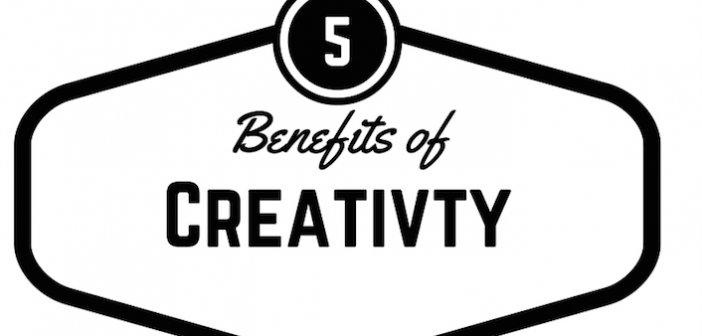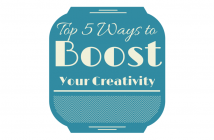There are many different ways in which creativity can play a role in our lives. Whether you’re a hobbyist or someone who works in a creative field, there are endless benefits, mentally, physically, and socially, of creativity. Below are five great examples.
1. Improved Mental Health
Creative Arts Therapies is an emerging field that employs the arts to help improve people’s mental health. According to the National Coalition of Creative Arts Therapies Associations (NCCATA), it encompasses a wide range of modes of expression including art, dance/movement, drama, music, poetry, and psychodrama.
“Creative Arts Therapists are human service professionals who use arts modalities and creative processes for the purpose of ameliorating disability and illness and optimizing health and wellness. Treatment outcomes include, for example, improving communication and expression, and increasing physical, emotional, cognitive and/or social functioning.”
Neuroplasticity is responsible for the formation of new neurons and their connectivity to one another. While the brain is capable of positive change throughout life as we get older, our brains requires certain types of activities to provide adequate stimulation. Creative activities, whether you undertake them yourself or with the guidance of a Creative Art Therapist, can provide such stimulation.
2. Better Performance in the Workplace
Companies such as Facebook, Google and Virgin Atlantic have found that there is great value in creating a culture of creativity for their employees. Facebook, for example, has covered their walls with massive art installations and murals, as well as three-foot-tall balloons positioned above desks that commemorate employees’ Facebook anniversaries. Virgin Atlantic starts things off on a creative note for their employees with scavenger hunt on the first day of orientation. Meanwhile, Google discovered that after implementing their 20% rule, which encourages employees to spend 20% of their time on side projects they are passionate about, that there was a significant boost in productivity for the company as well as their employees.
A study conducted by San Francisco State psychology professor Dr. Kevin Eschleman found that creativity provided the following benefits for employees.
- Improved immune system functioning
- Fewer stress-related visits to the doctor
- Reduced blood pressure
- Reduced absenteeism from work
- Quicker re-employment after job loss
- Improved working memory
Creativity not only helps keep employees engaged, it also provides the company with a happier healthier workplace.
3. Grief Recovery
Grief, unfortunately, is unavoidable. It’s a human experience that we all go through at some point in our life. How we as individuals choose to deal with grief, however, often varies greatly. Psychologist Shelley Carson book’s, Your Creative Brain, explores the effects some of the different types of coping can have on the recovery process.
“From my work with returnees from Iraq and Afghanistan I know that the grieving process is crucial to future happiness and mental health. Many returnees refuse to grieve, thinking it’s a sign of weakness. But it is part of the human experience and is a journey through darkness that has to happen.” Carson’s book lays out many creative activities which facilitate grieving and help the pain subside. This enables the soul grow stronger.
4. Helps the Economy
On a large scale, creativity can help the economy by helping companies to adapt business strategies or invent new technologies. Creativity also gives businesses the flexibility to be able to produce innovative solutions to new problems. Creativity also allows companies to stay relevant and thrive in uncertain economic climates.
On the individual level, creative people also play an important role for businesses. A study by Neil Lee and Andrés Rodríguez-Pose of the London School of Economics found that creative workers play a key role in innovation. According to the study, creative workers were a “significant driver of product innovations overall” and a “key driver of learnt process innovations.”
Creativity can help an individual adapt in times of an uncertain economy. For example, in the age of the internet, many have found creative ways to offer value to companies by using social media as a marketing tool. Others have taken this a step further and turned working completely independently with endeavors such as being a content provider on YouTube.
5. Happiness
There seems to be an idea that creative types, are by nature moody, pensive and prone to depression. We’ve seen this countless times by portrayal of creative characters in novels, film and television. It turns out, however, the melancholy artist type may be a myth.
Scientific research has shown a positive link between creativity and happiness. A team from the University of North Carolina-Greensboro published a report in the journal Psychology of Aesthetics, Creativity, and the Arts in which they conducted an experiment in which college students were studied for a week to examine how their moods correlated with different projects they were working on at the time.
The researches discovered that many of the students indicated that they were happier while undertaking creative tasks. According to the article, “Interestingly, the researchers found no evidence that negative states such as sadness, anger, or anxiety had any effect on the likelihood of engaging in creative behavior. The stereotype of a neurotic person ‘seeking solace in creativity was clearly not supported in this study,’ they write.”




